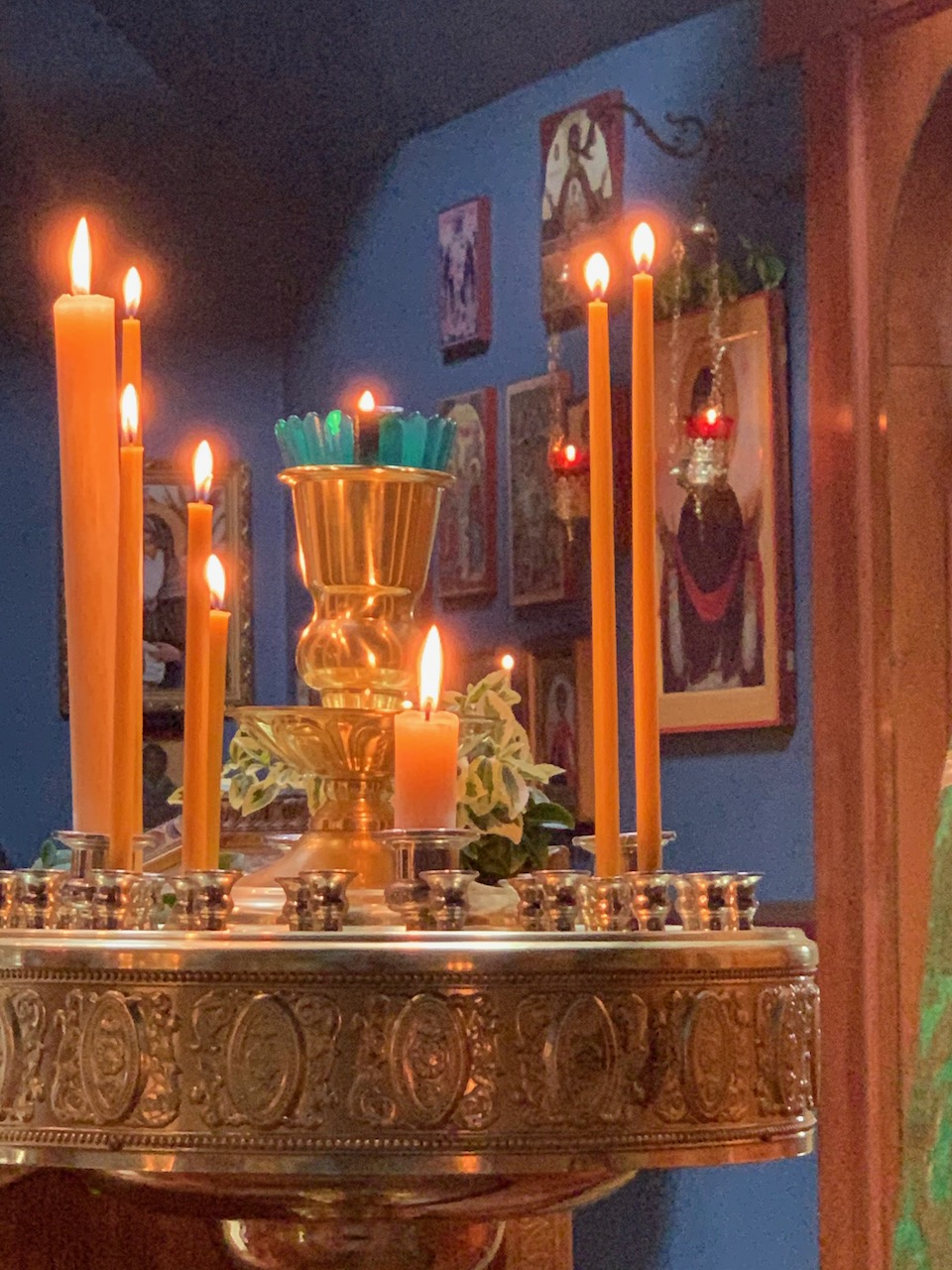The Sunday of All Saints
Honouring the friends of God with much reverence, the Prophet-King David says, "But to me, exceedingly honourable are Thy friends, O Lord" (Ps. 138:16). And the divine Apostle, recounting the achievements of the Saints, and setting forth their memorial as an example that we might turn away from earthly things and from sin, and emulate their patience and courage in the struggles for virtue, says, "Wherefore seeing we also are compassed about with so great a cloud of witnesses, let us lay aside every burden, and the sin which doth so easily beset us, and let us run with patience the race that is set before us" (Heb. 12:1).
This commemoration began as the Sunday (Synaxis) of All Martyrs; to them were added all the ranks of Saints who bore witness (the meaning of "Martyr" in Greek) to Christ in manifold ways, even if occasion did not require the shedding of their blood.
Therefore, guided by the teaching of the Divine Scriptures and Apostolic Tradition, we the pious honour all the Saints, the friends of God, for they are keepers of God's commandments, shining examples of virtue, and benefactors of mankind. Of course, we honour the known Saints especially on their own day of the year, as is evident in the Menologion. But since many Saints are unknown, and their number has increased with time, and will continue to increase until the end of time, the Church has appointed that once a year a common commemoration be made of all the Saints. This is the feast that we celebrate today. It is the harvest of the coming of the Holy Spirit into the world; it is the "much fruit" brought forth by that "Grain of wheat that fell into the earth and died" (John 12:24); it is the glorification of the Saints as "the foundation of the Church, the perfection of the Gospel, they who fulfilled in deed the sayings of the Saviour" (Sunday of All Saints, Doxasticon of Vespers).
In this celebration, then, we reverently honour and call blessed all the Righteous, the Prophets, Apostles, Martyrs, Confessors, Shepherds, Teachers, and Holy Monastics, both men and women alike, known and unknown, who have been added to the choirs of the Saints and shall be added, from the time of Adam until the end of the world, who have been perfected in piety and have glorified God by their holy lives. All these, as well as the orders of the Angels, and especially our most holy Lady and Queen, the Ever-virgin Theotokos Mary, do we honour today, setting their life before us as an example of virtue, and entreating them to intercede in our behalf with God, Whose grace and boundless mercy be with us all. Amen.



